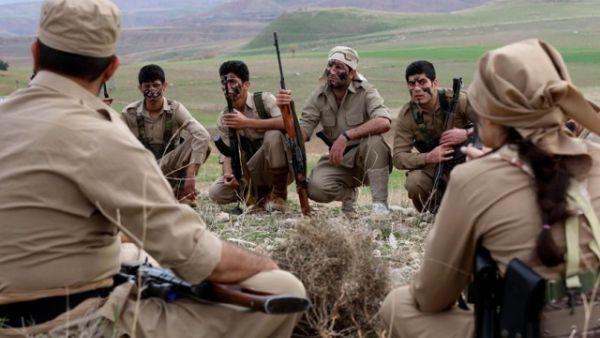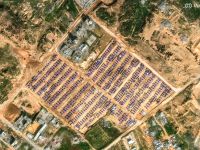Life in the Qandil Mountains of Iraqi Kurdistan
The window is open and only the mice racing on the first floor interrupt the whistling of the cicadas. It's hot. Wiria and his daughter Par-Wa nap in the living room, under the air conditioning stream. The family lives in Wasan, a village in the mountains of Qandil, in Iraqi Kurdistan on the border with Iran. It's hard for visitors to get here because Wasan, like other villages in the area, is in a valley surrounded by high mountains. The PKK (the Kurdistan Workers Party) has been deployed here for about 15 years while they continue their fight in Turkey for greater rights and self-determination for Kurds.
Continue reading on Jadaliyya
The Champ-Elysées in Zaatari camp
The salesman on the Champs-Elysées displays the shiny black shoes in neat, even rows. Each time the wind picks up, each time a truck roars past, they are drowned in billows of fine desert sand. And each time, the salesman dusts the sand off each shoe, wipes it down and places it back in line. Another cloud of sand may come along any moment, but the shoes will stay clean.
Named by French aid workers, this Champs-Elysées is the main high street in the Za’atari refugee camp, a three year old Syrian city in Jordan where 130,000 refugees are trying to make a living somewhere they do not wish to live.
Continue reading on Middle East Revised
Isreal still holds all the cards
Thirteen years passed between the First Intifada, which broke out in December 1987, and the start of the second in October 2000. Both intifadas lasted for roughly five years. It has been 15 years since the start of the Second Intifada, and 10 years since it ended.
If history and experience teach us anything, the timeframe is exactly right for the arrival of a new generation of young Palestinians who are willing to confront Israel — like their big brothers did, and before them, their parents. That theory also holds if you look at the profile of those carrying out the stabbing attacks and those taking part in demonstrations in recent days — mostly people under the age of 20.
Continue reading on +972 Mag







